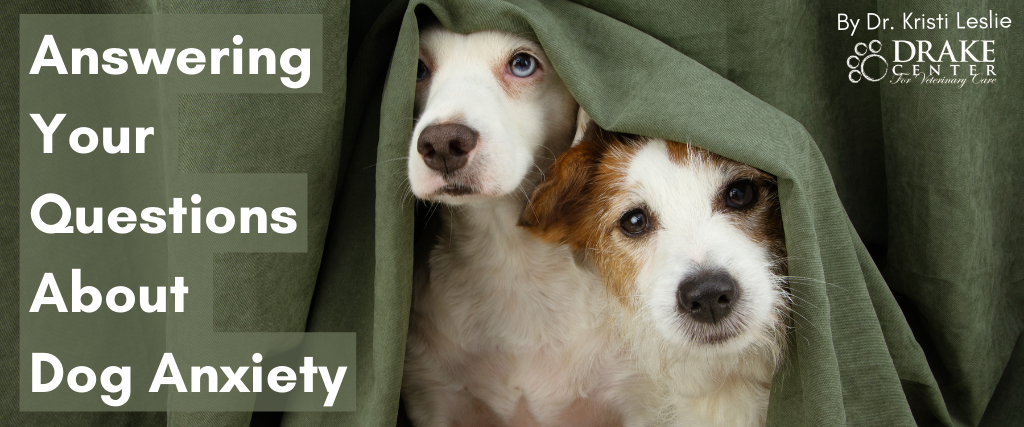Anxiety has become a prevalent issue that affects many dogs. Anxiety can be defined as a feeling of worry that typically arises when there’s a fear-inducing stimulus. Whether it is situational anxiety or generalized anxiety, understanding the causes and symptoms of anxiety in dogs is imperative to be able to provide them the care they need.
Situational anxiety - this form of anxiety occurs in certain contexts. Examples include:
- Veterinary visits
- Travel
- Noises or sounds
- Being left alone (separation anxiety)
- Generalized anxiety - this form of anxiety can occur from many potential triggers or situations
- Symptoms
Common symptoms of anxiety in dogs include:
- Panting
- Pacing
- Trembling
- Drooling
- Hiding
- Some dogs may appear more irritable and bark.
- The dog’s tail is typically low or tucked, their ears are back, and you may see more of the white of their eye than normal (whale eye).
- Anxious dogs may also display displacement behaviors, such as stretching or yawning repetitively.
- It is also important to note that some anxious dogs may appear extra friendly.
- They may repetitively jump on you or try to lick you; they may also appear needier to their owners.

What Can I Do?
First, your pet should be evaluated by a veterinarian to ensure there are no underlying medical causes to your pets symptoms. If your pet is diagnosed with anxiety, thankfully there are ways every dog owner can reduce their dog’s anxiety. It’s important to modify anxiety management to each individual, but some general tips include:
- Understand the specific triggers/situations that cause anxiety in your pet, and learn how to recognize their specific symptoms
- Create a consistent and predictable routine for your dog, and prepare for situations outside of that routine (eg: if you have a gathering at your home, creating a safe space for your dog to go to)
- Give your dog appropriate exercise and mental stimulation for the age, health, and breed of dog
How The Drake Center Helps:
- We at the Drake Center understand that many pets are anxious coming into our hospital, so we take extra care to ensure each dog's experience is a positive one.
- We work closely with owners of anxious dogs to provide the care their pet needs in a manner that keeps the dog’s anxiety at bay.
- We are also able to discuss individualized methods on how to decrease your dog's anxiety, and improve your dog’s overall quality of life.
Conclusion:
Anxiety can lead to numerous negative effects on a dog’s overall health. It is important to recognize the symptoms, and talk to your veterinarian if you think your pet suffers from anxiety.

